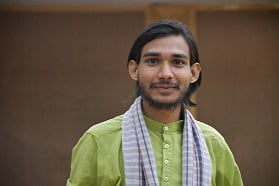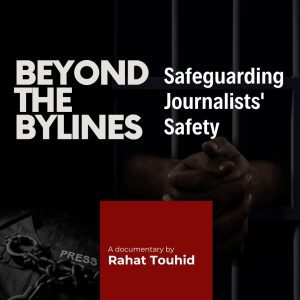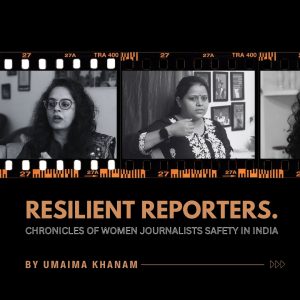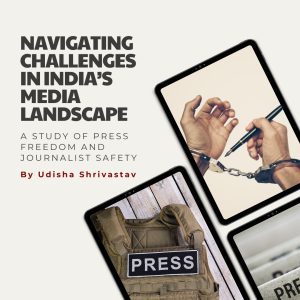What compelled you, as a Danish Siddiqui scholarship winner, to focus on the critical issue of journalist safety in your podcast series?
As a Danish Siddiqui Scholarship winner, while working on my project under the theme of Journalist Safety, I was compelled to highlight the critical issues faced by journalists. Journalists take risks while working for various organisations but often receive little in return besides the completion of the work/project. They do not pursue personal benefits; however, there are no strong rules or regulations in place to support them or assist in adverse circumstances. They are neither paid very large amounts nor do they receive any other benefits from their organizations or the government.
How do you choose your podcast topics and guests?
The podcast topics and guests for the interview episodes were selected based on the theme and its impact, diversity, and coverage. The chosen topics focus on how the media is perceived through a journalist’s perspective, the challenges journalists face, the lack of rules and regulations regarding their safety, and how journalists work under the constitution but lack the same support as other pillars of democracy.
In your research and preparation for the series, what were some of the most surprising or eye-opening discoveries you made about journalist safety?
While conducting research and recording the podcast series, I encountered many changes. Previously, creating only a weekly program would take an entire day, but technological advancements now allow for direct live broadcasting, which has also led to the elimination of the proofreader role. Additionally, no museum is dedicated to the fourth pillar of democracy, and the facilities for safety and security are not on par with the other pillars of democracy.
What do you hope to achieve with this mini-podcast series?
This podcast series has opened an arena for new thinking, achieving a broader concept and deeper analysis of journalist safety. Through this podcast, I hope the audience will understand the behind-the-scenes aspects of a journalist’s life that are not apparent in their words, voice, or visuals during their work. I would feel personally satisfied and consider it a success if any organization or group works towards establishing a museum for the fourth pillar of democracy and enhances journalist safety.
What are the biggest challenges facing journalists regarding safety, and how can individuals and organizations work towards addressing them?
One of the biggest challenges journalists face regarding safety is that organizations do not stand behind them in support, nor do they take responsibility for protecting their employees. The organization to which the employee is attached must stand up and take appropriate steps to safeguard its employees. An organization or Union of Journalists could also be formed so that if any mishap occurs, the organization must stand together with them. This could be established from the regional and state levels up to the central level so that matters could be easily resolved at those levels.
Looking ahead, what topics or issues do you hope to explore in future seasons of the podcast?
I want to explore the challenges faced by new journalists who have just completed their education and are striving to secure positions in renowned media organizations. I will further focus on the gap between the education and skills imparted to them and the requirements of media houses. As I have also gone through this phase, I know that it can be very difficult to find internships, fellowships, and jobs at the beginning of one’s career.
About Aman Jaiswal

A Media Support Executive at the Election Commission of India, Aman specializes in social media management, media monitoring, and content creation. An award-winning journalist, he has experience with Times Now Navbharat and ANI as a Multimedia Producer. Aman also regularly contributes to national newspapers and digital media platforms with multimedia stories and infographics.





